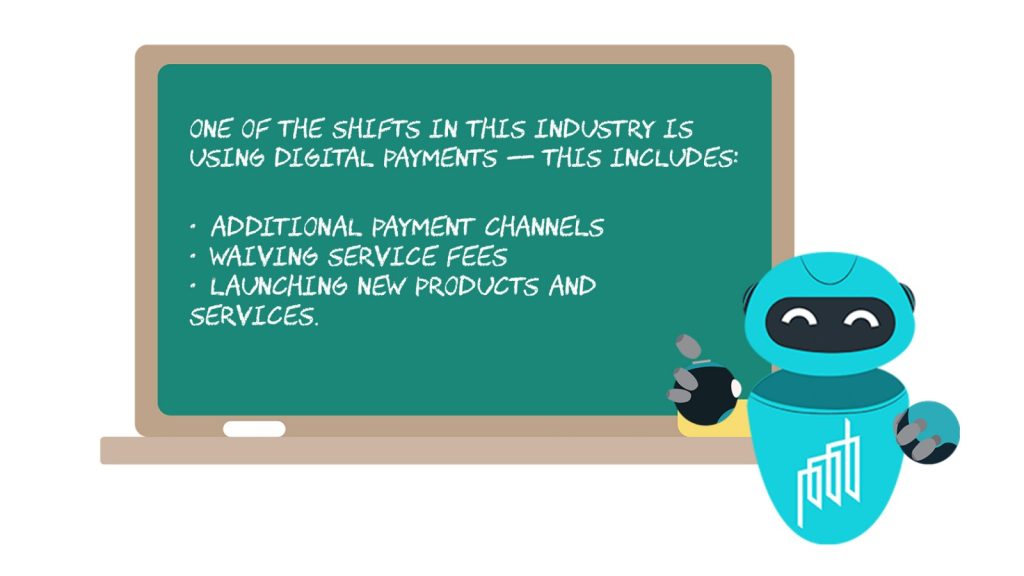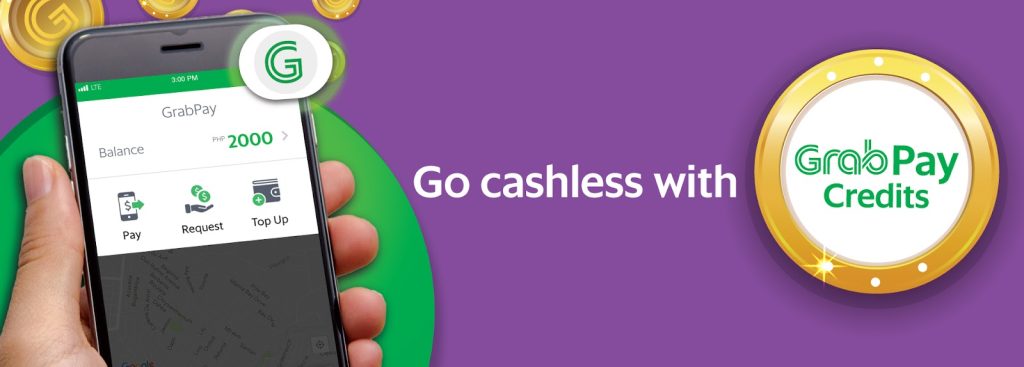This pandemic made us adjust to a more remote setting— working from home, studying from home, and accomplishing errands through online payments. Today’s technology can make us see how it changes rapidly right in front of us.
Because of this, business owners have learned to accelerate their digital operations to adapt to these changes as cities remain under lockdown with continued work-from-home setups. As this is the new normal, tech solutions are becoming increasingly important to help businesses stay afloat.
Financial services are one to look out for as banking activity becomes digitized, and people are voluntarily choosing to manage their finances from home.
Let’s say your team needs to digitize the transaction between the clients and the company, but you don’t know the right technology to use.
That’s why Professor 3P is here to guide you in choosing your Fintech solutions! He is here to show you how changes in customer behavior pushed companies to provide people with more viable products and services.
If you’re part of the finance and banking industry, then this is for you. Let’s dive in and see what 3P has in store.

FinTech Industry During COVID-19
This industry has seen increased growth since the onset of the pandemic. According to the World Economic Forum, fintech firms in countries with stricter lockdown measures have seen up to a 50% increase in transaction growth, unlike countries with more lenient protocols.

There is an increased demand for enhanced financial services, especially in developing countries like the Philippines, to have an inclusive and safe digital experience.

Now it’s time for me to show you six fintech solutions you need this year!
Digitizing your business
As people continue using contactless payment methods, there is an evident surge in demand for digital-only banks. These banks provide basic banking services through digital platforms and devices only.
This process works with real-time data collection, electronic documentation, cloud services, and other automated processes. The rise of going digital allows banks to collect real-time data, helping them provide more personalized customer information. For instance, personalized messages regarding a customer’s spending habits can be beneficial to them.

Aside from risk-free banking services, it is also convenient for customers, even without a pandemic. For one, there is less travel time and waiting in line to worry about. There are fewer banking-related stresses as customers can get what they need with only a few clicks.
Unionbank of the Philippines is one of the banks that have adopted cloud-based solutions to improve their banking services. They looked to automate their business process, integrate real-time reports, and automate lead scoring, among many others.
Third Pillar stepped in and introduced them to Salesforce Sales and Service Cloud. Through these services, Unionbank was able to obtain leads from web-to-lead forms, portals, and other platforms. Sales teams were also able to manage their assigned leads and ensure that the business processes ran smoothly.
Customers are now able to open accounts through the app without having to visit a physical branch. They can simply upload the needed documents and enter their information. This process is quick, efficient, and convenient which all enhance customer satisfaction and retention.

Read more about how Unionbank achieved this and how Third Pillar’s services helped them win the Best Retail Bank Philippines 2020 from Global Banking and Finance.
Artificial Intelligence
AI has proven itself to be an efficient way of helping companies improve operations, products, and services. It will become even more helpful this year as data collection continues to help prevent the spread of the virus.
There is a mountain of data that will help understand COVID-19 recovery concerning business operations. Having these data can help develop better solutions with AI.
Algorithms from AI can also predict demand for products and services, which will help companies better allocate their resources. It can detect changes in consumer behavior, and businesses can use it to adjust their operations.
According to a study by Autonomous, it estimates that banks could save up to $1 trillion from the use of AI alone. It also addresses cybersecurity concerns as it identifies financial frauds and threats to your business.

Cloud Computing
It allowed work to continue operating during a crisis. One of the benefits of cloud adoption is helping employees work from home, ensuring their safety in their process.
Since physical contact was limited, companies needed to address this change right away. Cloud services have helped organize and manage calls and other customer concerns.
One tool you can use is Salesforce Financial Services Cloud. This platform ensures the relationship between you and your customers last. It makes it simple for you to deliver efficient and personalized services that reach customers’ expectations.

Aside from adapting, you are also able to scale up. This technology can speed up daily operations and improve organization, proving that companies can still operate efficiently even remotely.

Open Banking
Open banking paints a more centralized picture of a person’s financial journey. It relies on banks and third-party providers like fintech startups who are navigating the landscape through their products and services.
While open banking is still a relatively new term in the Philippine market, the pandemic became the impetus for the Filipinos need for open banking services like budget planning services and paperless deposits.
In 2018, HSBC launched the Connected Money app in order to give customers more control over their financial data. The app allows customers to view multiple accounts in one platform, including mortgages and credit cards. Open banking has great potential for revenue for fintech startups while still promoting financial inclusion.
Financial Inclusion Efforts
According to Bangko Sentral ng Pilipinas (BSP), there are still roughly 51.2 million unbanked Filipinos despite the rise of mobile phone use in the country. But fintech solutions today are promoting financial inclusion through digital financing services
Paymongo is one of the digital finance players that allows customers to accept payments from digital wallets like GCash and GrabPay by providing an online payments application programming interface (API) for local businesses, which can be integrated into various websites and applications.

Technology can make or break how we adapt and function as a society during and after the pandemic. Fintech has been a game-changer the past year as we slowly move to digital services. It has been undeniably helpful in making sure that we are safe while still accomplishing our day-to-day tasks.
We understand the need for services like this, as shown in our Fintech case study. Allow us to help your business rise in the new normal with Salesforce, the world’s #1 CRM platform. Let’s chat!
